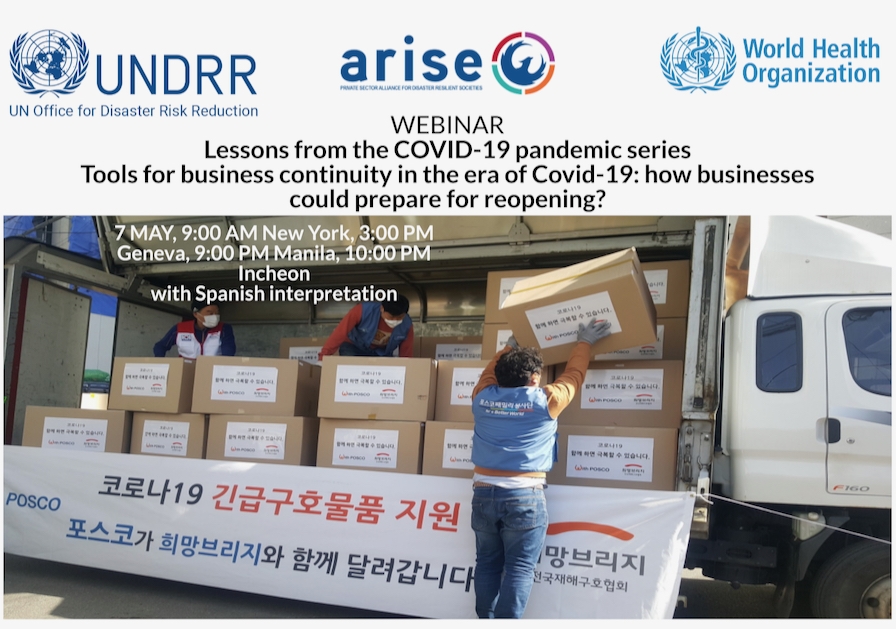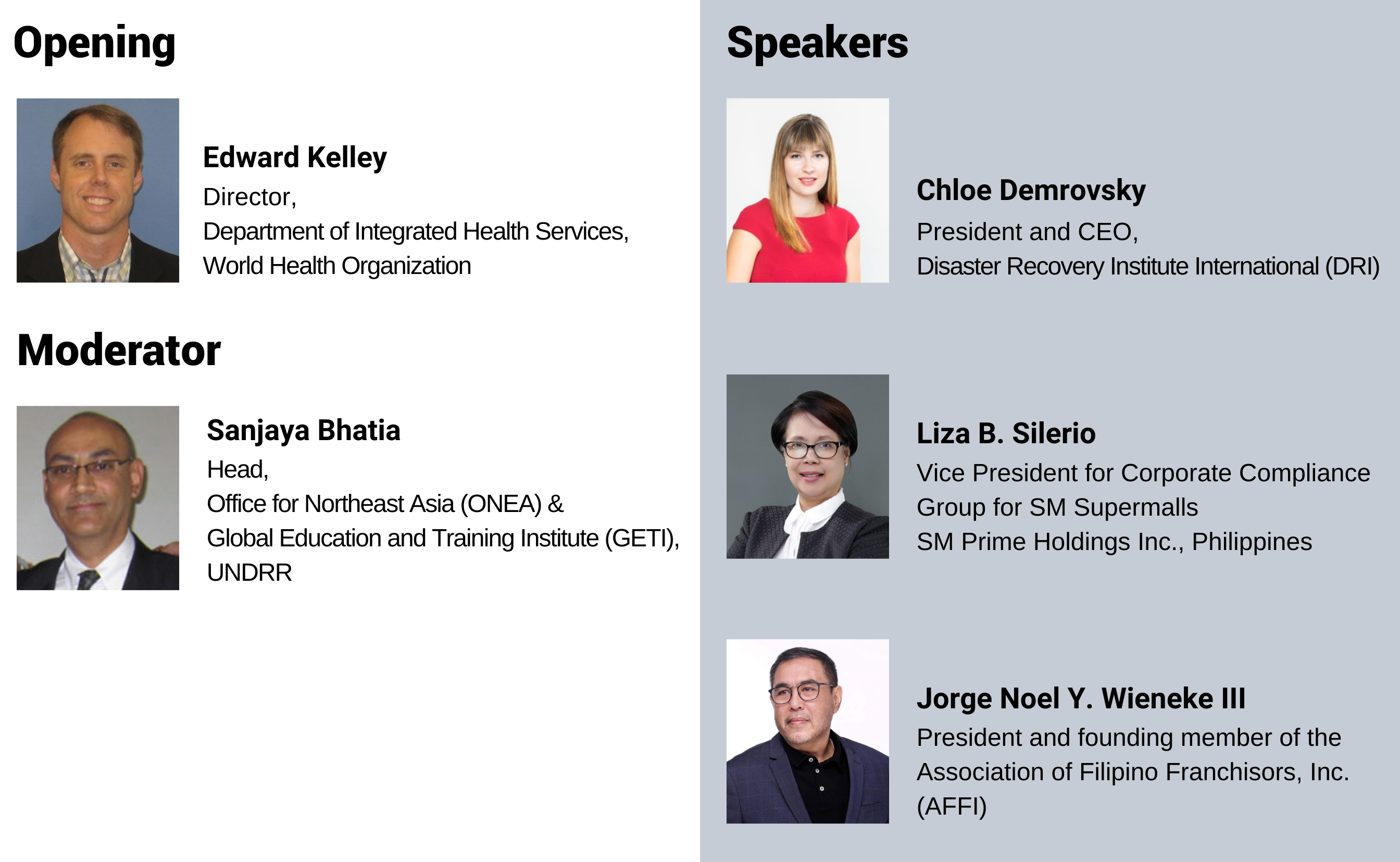UNDRR GETI and WHO Webinar: Lessons from the COVID-19 pandemic: Business continuity in the era of Covid-19: how businesses could prepare for reopening?
- English


Background
Up to 80% of all investment in any given country is coming from the private sector. It is therefore critical that the private sector engages to make this investment risk informed. The private sector is a critical participant in the creation of risk-resilient societies. By combining the intellectual (know-how) and capital assets of the private sector with the public sector and other stakeholders solutions will be developed and implemented to achieve the targets of the Sendai Framework by 2030.
At the same time the COVID-19 situation reveals the challenges of managing health risks while reducing disaster risks. All countries face systemic risks, such as those associated with disease outbreaks, with the potential for very significant socio-economic impacts.
A range of international instruments and frameworks exist to support countries in managing these risks. In particular, the International Health Regulations (2005), and the Sendai Framework for Disaster Risk Reduction 2015-2030 , which provides concrete actions to protect development gains from the risk of disasters due to biological, natural and technological hazards.
Many countries have responded to the COVID19 crisis by varying degrees of lockdowns, causing losses of jobs and immense socio-economic impacts. Governments are now considering easing the lockdown restrictions in a phased manner, to allow economic activities to restart.
Content and objectives
Shutting down the global economy in the age of Covid-19 was tough. Reopening will be even harder. How should organizations continue operating in this new normal? This webinar will showcase best practices and advice that are informed by lessons learned and recorded from past outbreaks including SARS, MERS, H1N1, H5N1, Zika, and Ebola, and also from other hazards. The webinar aims to give business owners the tools to better prepare for and respond to such events. The webinar will share leadership strategies adopted by the private sector to continue business during the lockdown.
Disaster Recovery Institute is the leading global nonprofit that trains and certifies the resilience professionals who help organizations prepare, including at governments worldwide and at 95% of Fortune 100 companies (all the big American brand names including major banks, healthcare organizations, and all other critical businesses). We set the standard followed by 15,000+ disaster professionals worldwide who are working tirelessly to keep toilet paper on your shelves, get your prescriptions filled, and put food on your table. That's what business continuity is all about. Watch this webinar to learn more about the tools that help our business continuity practitioner community do that.
The ARISE Network currently comprise of 250 members companies across all continents working towards resilient business practices. A priority area of focus is enhancing long-term resilience of SMEs. UNDRR works with ARISE members through the regional and national networks to engage current and potential ARISE members to implement risk informed business practices. We work from the micro to the macro level, including SME associations, Chambers of Commerce and regional business networks.
Target audience:
Small and medium enterprise owners and DRR experts from all regions
Webinar Recording:
For more information: Ana Cristina Thorlund, UNDRR Office for Northeast Asia (ONEA) and Global Education and Training Institute (GETI) at undrr-incheon@un.org

with funding support from:
